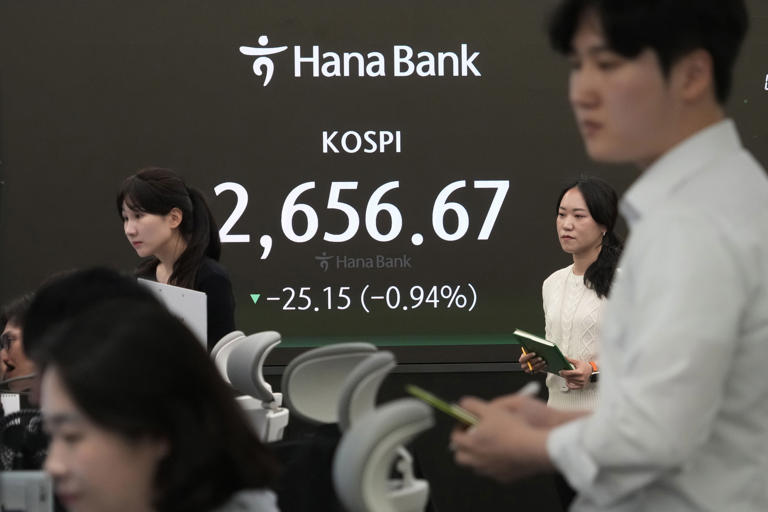In the wake of Iran’s unprecedented attack on Israel over the weekend, tensions in the Middle East have rippled through global financial markets, prompting investors to reassess their positions and seek refuge in safer assets. While U.S. futures managed to hold steady, oil prices experienced a decline, despite the turmoil in the region.
The military assault launched by Iran against Israel marked a significant escalation in the longstanding enmity between the two nations, dating back to Iran’s Islamic Revolution in 1979. The attack, which involved the launch of more than 300 missiles and drones, sent shockwaves across the Middle East and beyond. However, rather than triggering a widespread panic in financial markets, the response was relatively measured, with U.S. futures showing resilience.
Stephen Innes, managing partner at SPI Asset Management, offered insights into the market reaction, suggesting that while the drone attack grabbed headlines, its immediate impact on global markets, particularly oil prices and inflation concerns, may be subdued. Innes emphasized that Iran’s response appeared to be strategic, aimed at minimizing damage rather than escalating tensions further. This measured approach likely contributed to the stability observed in U.S. futures.
Across Asia, stock markets exhibited mixed reactions to the unfolding events. Japan’s benchmark Nikkei 225 slipped by 0.7%, reflecting investor unease, while Australia’s S&P/ASX 200 and South Korea’s Kospi both dipped by 0.4%. Similarly, Hong Kong’s Hang Seng experienced a decline of 0.6%, contrasting with the modest gain of 0.8% recorded by the Shanghai Composite.
The retreat in Asian markets followed a decline in Wall Street on Friday, where the S&P 500, Dow Jones Industrial Average, and Nasdaq composite all registered losses. Notably, JPMorgan Chase, despite reporting stronger-than-expected profits for the first quarter, faced a 6.5% decline in its stock value, reflecting broader concerns about market stability.
The prevailing uncertainties in the market center around interest rates and inflation. Traders have adjusted their forecasts for Federal Reserve interest rate cuts amidst persistent inflationary pressures. Additionally, a preliminary report indicating a decline in consumer sentiment in the U.S. has further contributed to market nervousness, reinforcing the need for cautious investment strategies.
Treasury yields in the bond market saw a decline, while the price of gold rose, reflecting investor preferences for safer assets during times of uncertainty. These moves underscored the cautious sentiment prevailing in global markets, as investors grapple with geopolitical risks and their potential impact on economic stability.
Overall, while the impact of the Middle East tensions on global markets remains fluid, investors are closely monitoring developments and adjusting their strategies accordingly. Despite the turmoil, U.S. futures indicate resilience, suggesting cautious optimism amid geopolitical uncertainties. As the situation continues to evolve, market participants will remain vigilant, prepared to navigate potential risks and opportunities in the ever-changing landscape of international finance.
